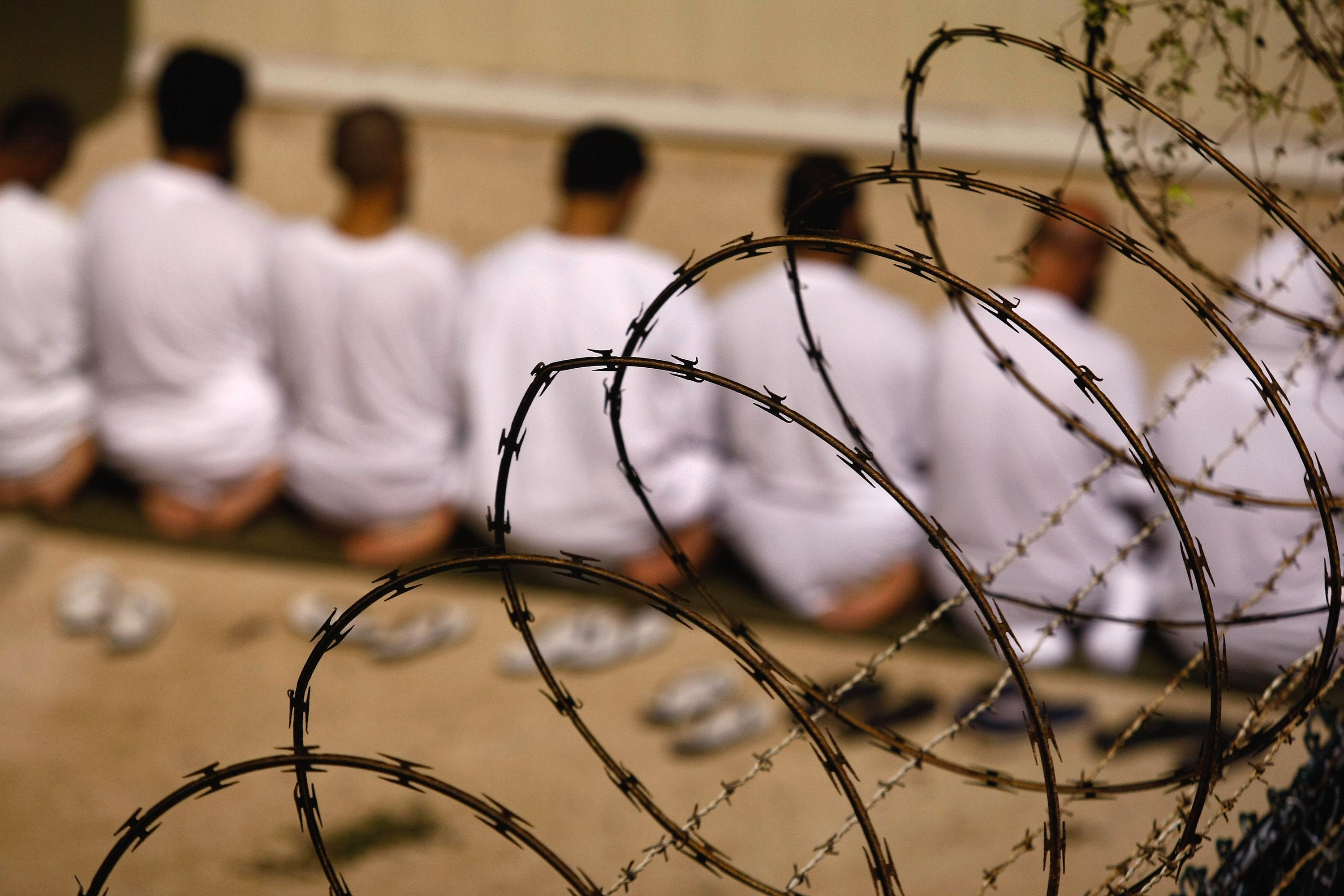A few weeks ago, the New York Times’ Charlie Savage reported that the Obama administration was considering reaffirming the Bush administration’s interpretation of the U.N. treaty banning “cruel, inhuman, or degrading treatment” of prisoners. The previous White House had held that the treaty applied within the United States but not to military or CIA prisons overseas.
A U.S. delegation was due to appear this week before the U.N. Committee Against Torture in Geneva and, Savage reported, military and intelligence lawyers had been pushing back against the State Department, which wanted to revise the U.S. stance on the treaty to apply to overseas facilities as well.
The story prompted an immediate backlash from human rights groups, and the State Department side seems to have won out—for the most part. Administration officials told the committee on Wednesday that the ban on torture applied to “wherever the United States exercises governmental authority,” including the detention center at Guantánamo Bay and U.S. military ships in international waters.
However, there are still some ambiguities. The administration’s new definition seems to exclude places like the “black site” prisons run by the CIA during the Bush administration, which were technically on the sovereign territory of other countries. (For me, one of the most surreal stories of this period, as recounted in Jane Mayer’s book The Dark Side, came when 9/11 mastermind Khalid Sheikh Mohammed learned what country he was being held in by seeing the Polish writing on a water bottle.)
U.S. officials argue that this does not mean that torture is allowed at these places. That would be banned, in any case, by a 2005 law passed by Congress. But they’re hesitant to accept that the treaty applies to these places because, as Savage puts it, “changing the jurisdictional scope could have unintended consequences, like increasing the risk of lawsuits by overseas detainees or making it harder to say that unrelated treaties with similar jurisdictional language did not apply in the same places.”
Jack Goldsmith, who served as assistant attorney general under Bush and was a noted internal critic of the administration’s legal rationale on interrogations, agrees that the administration’s position probably doesn’t mean it’s looking for ways to weasel out of the torture ban. “Many other treaties besides the Torture Convention include the phrase ‘territory under its jurisdiction’ or a similar phrase,” he writes on the Lawfare blog. “If the United States interprets this phrase to have broad extraterritorial reach in the Torture Convention, it might be committing itself to similar constructions in most if not all of those other contexts.”
The Obama administration has found ways to exploit extraterritoriality in its own counterterrorism policies. A number of prominent terrorist suspects captured abroad, including Benghazi attack planner Abu Khattala, Libyan al-Qaida operative Abu Anas al-Libi, and Somali militant Ahmed Abdulkadir Warsame, were interrogated aboard U.S. Navy ships for intelligence purposes before being read their Miranda rights and turned over to the civilian justice system. Osama Bin Laden’s son-in-law, Sulaiman Abu Ghaith, captured in Jordan in 2013, was likely interrogated by CIA and FBI personnel while in Turkish custody before being handed over to the FBI. That doesn’t mean these suspects were tortured, but even as the Obama administration has sought to bring terror interrogations in line with U.S. international laws, it has also exploited the loopholes provided by ambiguous national jurisdiction.
Meanwhile, the U.N. commission continues to press the United States on other matters. The panel yesterday pressed U.S. officials to explain a section of the U.S. Army field manual that stipulates detainees be allowed at least four hours of sleep, an amount members of the commission said could be considered sleep deprivation.
